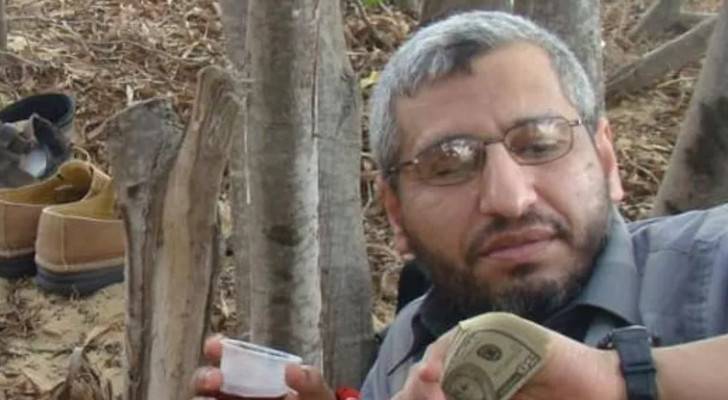Mohammad Deif
After assassination claim: Who is Mohammad Deif?
On Thursday, the Israeli Occupation Forces (IOF) officially announced the assassination of Mohammad Deif, the general commander of the military wing of the Izz al-Din al-Qassam Brigades, the armed wing of Hamas.
This announcement follows the assassination of Ismail Haniyeh, the head of Hamas' political bureau, in Tehran, Iran, on Wednesday.
Who is Mohammad Deif?
Mohammad Deif, a Palestinian theatrical artist and political figure, played a key role in establishing the first Islamic art group in Palestine, known as "Al-A’idoun" (The Returnees), before becoming one of Israeli Occupation's most wanted targets. He later became the general commander of the Izz al-Din al-Qassam Brigades, the military wing of the Islamic Resistance Movement (Hamas).
Deif's persona is shrouded in mystery. He is known for his caution, quick wit, and rarely appears in public. Since a failed assassination attempt in September 2002, Deif has only been heard in statements related to resistance operations, the most recent being Operation Aqsa Typhoon on October 7, 2023.
Early Life and Background
Born in 1965 as Mohammad Diab Ibrahim Al-Masri, later known as Mohammad Deif, he hailed from a Palestinian refugee family that was forced to leave their hometown of Al-Qubeiba in what is now Israeli Occupation in 1948. The family resettled in Khan Yunis refugee camp in the southern Gaza Strip, where they endured extreme poverty, pushing Deif to work various jobs from a young age.
Education and Formation
Deif studied science at the Islamic University of Gaza, where he was an active student involved in religious, student, humanitarian, and theatrical activities. His time at university deeply influenced him with Islamic thought, leading him to join the Muslim Brotherhood, where he became one of the prominent activists of the Islamic Bloc.
Political Experience
In 1989, Israeli Occupation Forces (IOF) arrested Deif, and he spent 16 months in prison on charges of working with Hamas' military apparatus. Upon his release, Deif played a crucial role in establishing a branch of the al-Qassam Brigades in the West Bank following the assassination of Imad Aqel in 1993. He was involved in various operations, including the capture of Israeli Occupation soldier Nachshon Wachsman and a series of retaliatory attacks after the assassination of Yahya Ayyash.
Role in Hamas
Deif was instrumental in the development of Hamas' weapons capabilities, making him a prime target for Israeli Occupation. He was arrested by the Palestinian Authority in May 2000 but escaped at the onset of the Al-Aqsa Intifada, where he proved his strategic and operational prowess. Following the assassination of Salah Shehadeh, Deif took command of the Brigades and orchestrated the transfer of the battle into Israeli Occupation.
Confronting the Israeli Occupation
During the May 2021 protests in Jerusalem, Palestinian youths chanted slogans in Deif's honor. Deif warned Israeli Occupation against its aggression towards the residents of Sheikh Jarrah neighborhood, asserting that the al-Qassam Brigades would intervene to defend them. On October 7, 2023, Deif announced the launch of the Operation Aqsa Typhoon against Israeli Occupation, claiming the firing of 5,000 rockets and missiles in the initial minutes of the assault.
Assassination Attempts
Deif has survived multiple assassination attempts by Israeli Occupation, earning the moniker "The Head of the Snake." He narrowly escaped five assassination attempts, the most significant of which occurred in September 2002, resulting in injuries that reportedly left him paralyzed. Despite these setbacks, Deif continued to operate with secrecy and caution.
Arrest Warrant
On May 20, 2024, the Prosecutor of the International Criminal Court announced a request for an arrest warrant for Mohammad Deif and other Hamas leaders on charges of committing war crimes. Hamas responded to the decision by condemning it as equating the victim with the oppressor and emphasized that it encourages Israeli Occupation to continue its "genocidal war."




